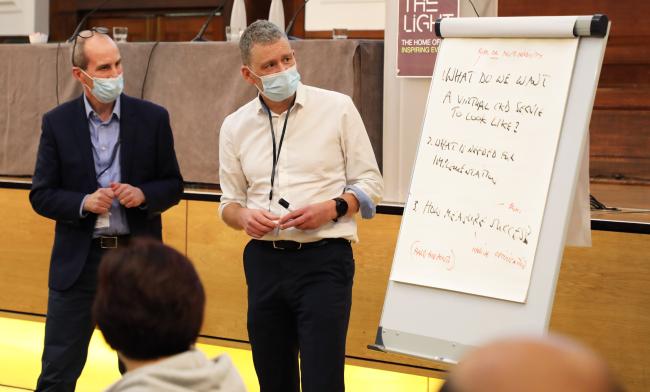The UKKA Chronic Kidney Disease Special Interest Group (CKD SIG)
The landscape of chronic kidney disease (CKD) in the UK is both wide and changing, with major advances in this period in both treatment options and care delivery for patients with CKD. The primary role of the UKKA's Chronic Kidney Disease Special Interest Group (CKD SIG) is to provide professional coordination within this space, ensuring the UK kidney workforce is as supported as possible.
History and Formation
The Special Interest Groups (SIGs) were established in anticipation of the merger between the Renal Association and the British Renal Society. The CKD SIG was one of the first established. The workstreams began in 2020, after the start of the COVID-19 pandemic, and became an exemplar for the use of digital networking and virtual presentations, including webinars.
Initially, the group was focused on three specific workstreams:
- Virtual Chronic Kidney Disease (CKD)
- The Kidney Failure Risk Equation (KFRE)
- eGFR formulae
The meetings continued online, with the chairs meeting face-to-face once a year.
Achievements and Impact
The eGFR and KFRE workstreams have successfully influenced NICE guidance, including the removal of the ethnicity adjustment for eGFR reporting and the incorporation of a kidney failure risk of 5% at 5 years as a threshold for referral to a specialist nephrology service. The KFRE UK online calculator is now hosted by the UKKA, and the AIM CKD project will report soon on the utility of different eGFR equations when applied in a UK population. The virtual CKD workstream included a face-to-face CKD summit, which led to the development of key recommendations for integration of virtual care models. The group has also had oversight of the eCKD resource, which was last revised in 2023 and is due for another revision to keep pace in this fast-moving area.

Leadership and Evolution
The initial chairs of the workstreams were Kate Bramham (eGFR), Rupert Major (KFRE), and Gavin Dreyer (Virtual CKD), who did an extraordinary job leading their respective teams. Paul Cockwell was the coordinating chair for the workstreams, a role that has now been taken up by Gavin.
The SIG's focus is expanding. A CKD systems workstream has evolved from the virtual CKD workstream. The KFRE and eGFR workstreams are currently undergoing a re-evaluation with plans to extend their focus to risk prediction and laboratory testing more generally.
Current Priorities and Future Direction
A key priority for the SIG is to improve collaboration and representation. The group is actively working to improve the representation of the four home nations and the wider multi-professional workforce. There is excitement about bringing colleagues from primary care and public health into the group to help reduce the gap between primary and secondary care, and to better understand and address health inequalities and the economic importance of CKD.
Key elements of the current work plan include:
- Strengthening Integrated CKD Services: Through funding from Boehringer Ingelheim, two colleagues from the SIG (Dr Rupert Major and Dr Kristin Veighey) have been appointed to strengthen integrated CKD services in the UK.
- Education and Implementation: This activity will be a core part of the work plan, together with improving CKD education resources and supporting the rollout of the Kidney Failure Risk Equation.
- Alignment with National Groups: The SIG will align with other professional groups in the UK, such as the national programme of care team and the CKD community of practice.
- Leveraging the 10-Year Plan: A significant challenge for the SIG is to reflect on and leverage the recent 10-year plan for the health service. The goal is to determine how CKD care can evolve to support the government's three proposed shifts and deliver the paradigm shift in care that patients with and at risk of CKD deserve
The SIG welcomes pan-UK, multi-professional involvement to ensure the vibrant landscape of CKD in the UK is delivering for our patients. Closer links with colleagues in public health and primary care will enhance the breadth and depth of collaboration and outputs for the whole UK kidney community
